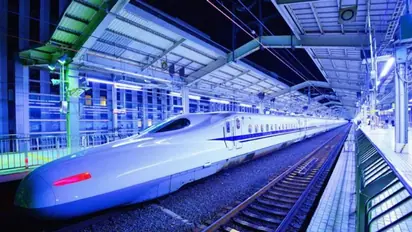Explained: Germany's longest railway strike ever underway, what is the issue hindering railway employees

Synopsis
Germany is facing its longest railway strike in history which is affecting around 7.3 million people daily. The strike is set to intensify as the parties involved are not returning to the negotiating table causing a loss of €100 million per day.
Germany is experiencing one of its worst longest railway strikes which could prolong if labour issues are not addressed. Almost 80 percent of long-route trains have already been canceled while many trains are running late. The situation is expected to get worse next week when the railway strike intensifies at the heart of the nation.
German Train Drivers' Union (GTDU) announced a six-day railway strike on Wednesday due to a labor dispute with Deutsche Bahn (DB) which is Germany’s publicly funded railway operator. German Train Drivers' Union houses around 40,000 members including train drivers, officials, and service workers.
The German Train Drivers' Union has been demanding better wages and reducing the work time for its members. They have demanded a reduction of working time from 38 hours per week to 35 hours per week. In the discussions so far, Deutsche Bahn has agreed to reduce the work time to 37 hours per week. An agreement on this demand could be reached within the next few days.
However, a deadlock appears in the demand to increase the wage. The German Train Drivers' Union has demanded a monthly pay increase of €555 (approximately $600) before taxes which is an 18 percent increase from the current standards. Deutsche Bahn strictly rejected the proposal and called it a repetition of well-known maximum demands. Both parties have not returned to the negotiating table since November.
GDL boss Claus Weselsky said, “Anyone who does not even come to the negotiating table with a new offer of up to 13% (wage increase) and the possibility of a 37-hour week with the same salary is acting absolutely irresponsibly.” The GDL chief also revealed that the labor union would return to the negotiating table when Deutsche Bahn comes down from its high horse.
German Chancellor Olaf Scholz has refused to intervene in the issue as he deemed that it would not be appropriate for him to involve himself in the dispute. While the German Transportation Minister used strong criticism of the German Train Drivers' Union stating that the demands made were one-sided and a burden on the society. The Deutsche Bahn is already facing a loss of €100 million per day due to the strikes.
Check the Breaking News Today and Latest News from across India and around the world. Stay updated with the latest World News and global developments from politics to economy and current affairs. Get in-depth coverage of China News, Europe News, Pakistan News, and South Asia News, along with top headlines from the UK and US. Follow expert analysis, international trends, and breaking updates from around the globe. Download the Asianet News Official App from the Android Play Store and iPhone App Store for accurate and timely news updates anytime, anywhere.